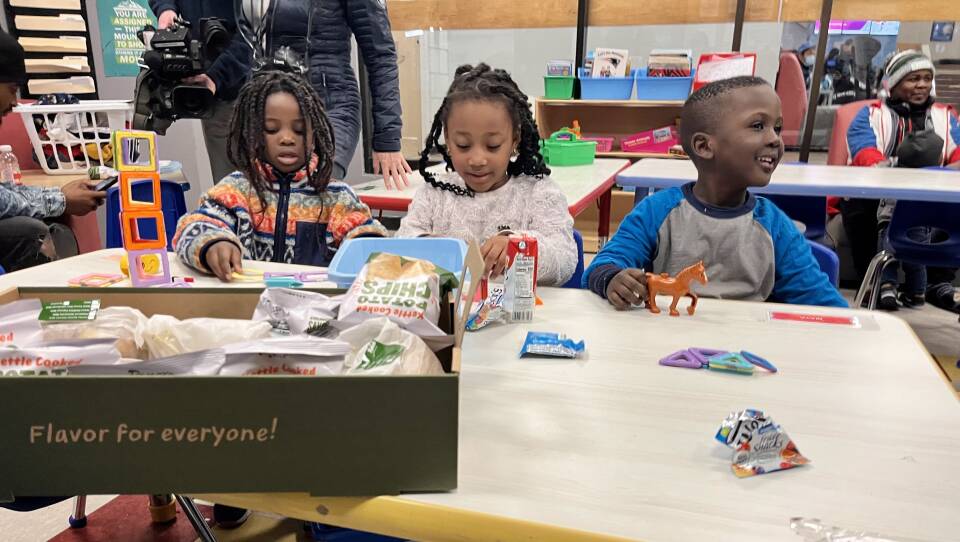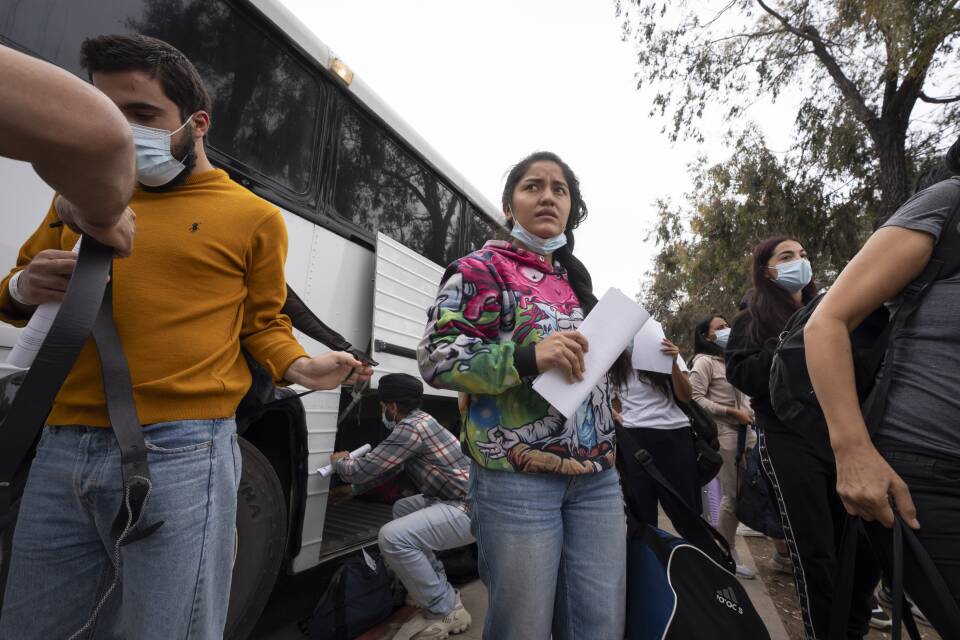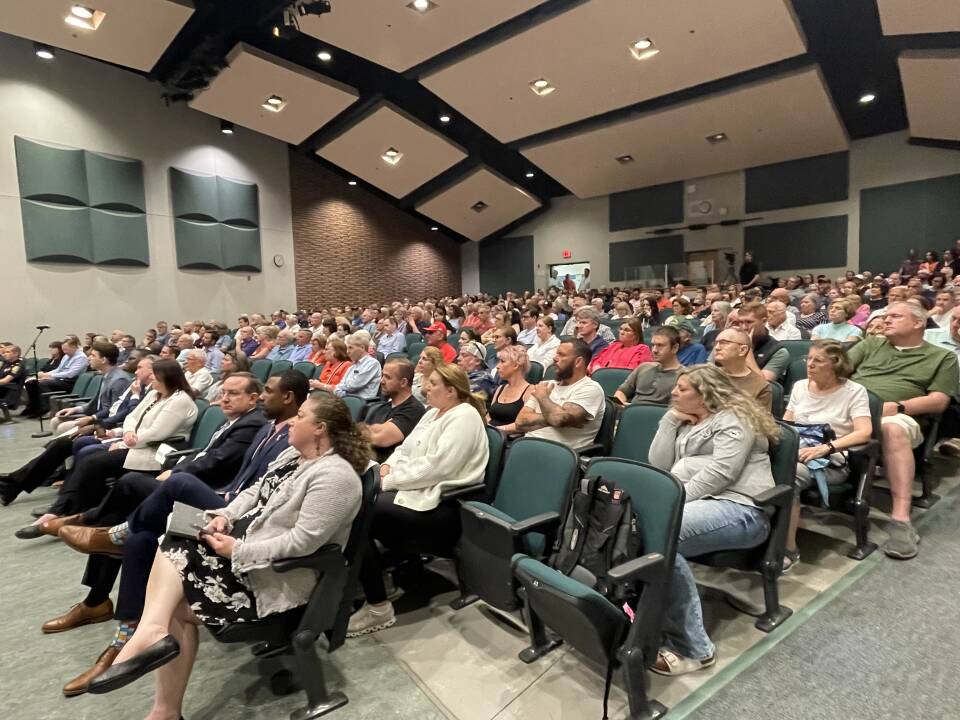In November, the number of homeless and migrant families in Massachusetts’ emergency shelter system reached a state-imposed limit. This followed Gov. Maura Healey’s declaration of a state of emergency in August due to the influx of families in need.
“A big thing to understand about the state of emergency, it was about our shelter system. So we talk about it as a crisis of people, but it was really a crisis in our shelter system running out of capacity,” Sarah Bartley from the nonprofit United Way of Massachusetts Bay said on Boston Public Radio on Thursday.
According to Bartley, United Way provides about 200 migrant families with services each day. “We make up about a third of the state’s overflow capacity,” she said.
The YMCA of Greater Boston also is helping. David Shapiro, president and CEO of the organization, explained how they had to improvise and adapt quickly to help these families in need, including a temporary emergency shelter on Farnsworth Street in Boston’s Fort Point neighborhood that is supported by a United Way grant.
“Are you hearing about the Farnsworth site anymore? That’s because organizations have stepped in, like the United Way, like the Boston Refugee and Immigrant Coalition, and like the [YMCA], to make sure people’s needs are met,” he said.
Shapiro said families were welcomed to the Wang YMCA in Chinatown without formal agreements, where they received immediate support and services. There, people also just get to relax a bit. Shapiro said teens will play basketball, seniors will do Zumba classes, and there are other activities.
“Adding 80 Haitian newcomer families to that mix is something that 1) is barely noticed by members and 2) inconveniences no one and — I would actually say — 3) adds to the dynamic diversity and beauty of the community in the Y,” he said.
Shapiro urged the public to understand the difficulties of those seeking refuge. He stressed that these people are in crisis and fleeing violence. In addition, he said these families have to move around constantly. He asked: “What happens at 7 in the morning when you clear your stuff out of a conference room where you had a cot set up with all of the luggage that you and your family have and a 2-year-old in your arms?”
To address the immediate housing needs, Bartley pointed out the value of partnerships between organizations, officials and landlords.
“At our particular sites that United Way has had the privilege to support because of our partnership with the administration, families do stay where they are all the time,” she said.
In light of the crisis, the state has had to prioritize shelter allocations and create waiting lists. For those who cannot find a place to stay, the options are stark and sometimes dire, including sleeping at Logan Airport.
Bartley stressed the importance of permanent housing. She emphasized the organization’s focus on creating pathways to enable families to integrate into the community, and called on local landlords to consider partnering with nonprofits to provide housing.
“Safe and stable housing is a foundation for all of us to thrive and share in the prosperity of this region,” Bartley said.








